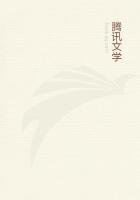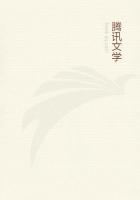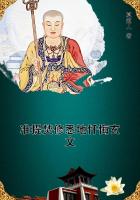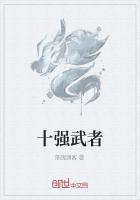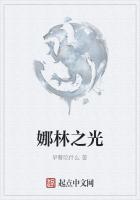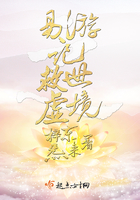Sir E. Cook. Life of Florence Nightingale.
A. W. Kinglake. The Invasion of the Crimea.
Lord Sidney Godolphin Osborne. Scutari and its Hospitals.
S. M. Mitra. Life of Sir John Hall.
Lord Stanmore. Sidney Herbert.
Sir G. Douglas. The Panmure Papers.
Sir H. Maxwell. Life and Letters of the Fourth Earl of Clarendon.
E.Abbott and L. Campbell. Life and Letters of Benjamin Jowett.
A.H. Clough. Poems and Memoir.
Dr. Arnold IN 1827 the headmastership of Rugby School fell vacant, and it became necessary for the twelve trustees, noblemen and gentlemen of Warwickshire, to appoint a successor to the post. Reform was in the air--political, social, religious; there was even a feeling abroad that our great public schools were not quite all that they should be, and that some change or other--no one precisely knew what--but some change in the system of their management, was highly desirable. Thus it was natural that when the twelve noblemen and gentlemen, who had determined to be guided entirely by the merits of the candidates, found among the testimonials pouring in upon them a letter from Dr. Hawkins, the Provost of Oriel, predicting that if they elected Mr. Thomas Arnold he would 'change the face of education all through the public schools of England', they hesitated no longer; obviously, Mr. Thomas Arnold was their man. He was elected therefore; received, as was fitting, priest's orders; became, as was no less fitting, a Doctor of Divinity; and in August, 1828, took up the duties of his office.
All that was known of the previous life of Dr. Arnold seemed to justify the prediction of the Provost of Oriel, and the choice of the Trustees. The son of a respectable Collector of Customs, he had been educated at Winchester and at Oxford, where his industry and piety had given him a conspicuous place among his fellow students. It is true that, as a schoolboy, a certain pompousness in the style of his letters home suggested to the more clear-sighted among his relatives the possibility that young Thomas might grow up into a prig; but, after all, what else could be expected from a child who, at the age of three, had been presented by his father, as a reward for proficiency in his studies, with the twenty-four volumes of Smollett's History of England?
His career at Oxford had been a distinguished one, winding up with an Oriel fellowship. It was at about this time that the smooth and satisfactory progress of his life was for a moment interrupted: he began to be troubled by religious doubts. These doubts, as we learn from one of his contemporaries, who afterwards became Mr. Justice Coleridge, 'were not low nor rationalistic in their tendency, according to the bad sense of that term; there was no indisposition in him to believe merely because the article transcended his reason, he doubted the proof and the interpretation of the textual authority'. In his perturbation, Arnold consulted Keble, who was at that time one of his closest friends, and a Fellow of the same College. 'The subject of these distressing thoughts,' Keble wrote to Coleridge, 'is that most awful one, on which all very inquisitive reasoning minds are, I believe, most liable to such temptations--I mean, the doctrine of the blessed Trinity. Do not start, my dear Coleridge; I do not believe that Arnold has any serious scruples of the UNDERSTANDING about it, but it is a defect of his mind that he cannot get rid of a certain feeling of objections.' What was to be done? Keble's advice was peremptory. Arnold was 'bid to pause in his inquiries, to pray earnestly for help and light from above, and turn himself more strongly than ever to the practical duties of a holy life'. He did so, and the result was all that could be wished. He soon found himself blessed with perfect peace of mind, and a settled conviction.
One other difficulty, and one only, we hear of at this point in his life. His dislike of early rising amounted, we are told, 'almost to a constitutional infirmity'. This weakness too he overcame, yet not quite so successfully as his doubts upon the doctrine of the Trinity. For in afterlife, the Doctor would often declare 'that early rising continued to be a daily effort to him and that in this instance he never found the truth of the usual rule that all things are made easy by custom.
He married young and settled down in the country as a private tutor for youths preparing for the Universities. There he remained for ten years--happy, busy, and sufficiently prosperous.
Occupied chiefly with his pupils, he nevertheless devoted much of his energy to wider interests. He delivered a series of sermons in the parish church; and he began to write a History of Rome, in the hope, as he said, that its tone might be such 'that the strictest of what is called the Evangelical party would not object to putting it into the hands of their children'. His views on the religious and political condition of the country began to crystallise. He was alarmed by the 'want of Christian principle in the literature of the day', looking forward anxiously to 'the approach of a greater struggle between good and evil than the world has yet seen'; and, after a serious conversation with Dr.
Whately, began to conceive the necessity of considerable alterations in the Church Establishment.
All who knew him during these years were profoundly impressed by the earnestness of his religious convictions and feelings, which, as one observer said, 'were ever bursting forth'. It was impossible to disregard his 'deep consciousness of the invisible world' and 'the peculiar feeling of love and adoration which he entertained towards our Lord Jesus Christ'. 'His manner of awful reverence when speaking of God or of the Scriptures' was particularly striking. 'No one could know him even a little,' said another friend, 'and not be struck by his absolute wrestling with evil, so that like St. Paul, he seemed to be battling with the wicked one, and yet with a feeling of God's help on his side.'

